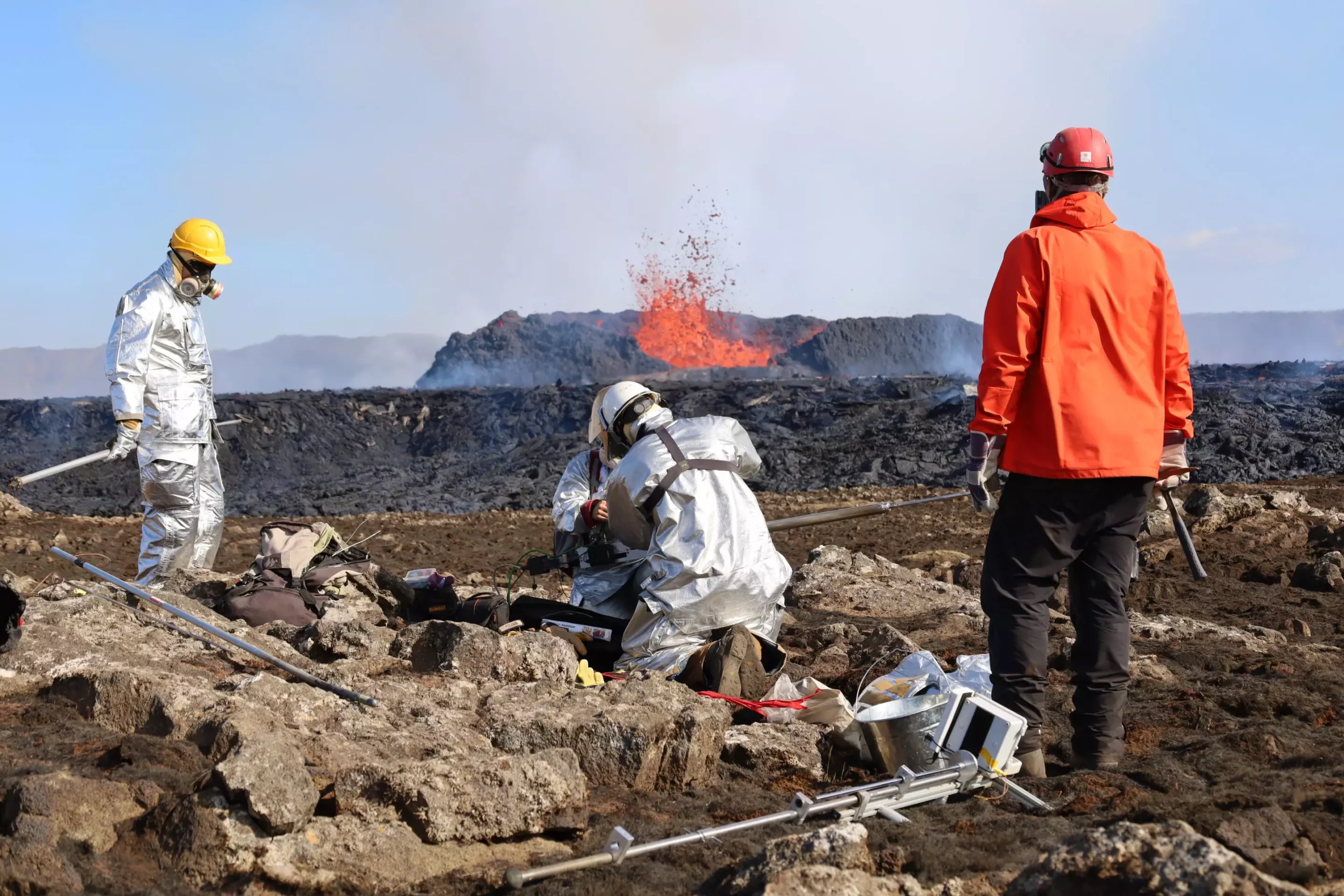Iceland has been facing ongoing volcanic eruptions that are predicted to persist for years to decades, placing the country’s most densely populated region and critical infrastructure at risk. The Reykjanes Peninsula has experienced a series of eight eruptions since 2021, leading authorities to declare a state of emergency. This region, home to 70% of Iceland’s population, its sole international airport, and several geothermal power plants, has been significantly impacted. The recent eruptions have forced evacuations, including popular tourist attractions like the Blue Lagoon geothermal spa.
Geological research utilizing local earthquake and geochemical data suggests that the Reykjanes Peninsula may be entering a new volcanic era after 800 years of dormancy. Scientists have been monitoring the volcanoes for the past three years, studying seismic tomography imaging and lava composition to gain insights into the geological processes at play. They anticipate that the region may experience recurring eruptions lasting for extended periods, potentially spanning centuries.
An international team of researchers, including experts from the University of Oregon, Uppsala University in Sweden, University of Iceland, Czech Academy of Sciences, and University of California, San Diego, collaborated on a study published in the journal Terra Nova. By analyzing geochemical and seismic data, the team investigated the magma sources feeding the eruptions on the Reykjanes Peninsula. Isotopic analysis of lava samples from different volcanoes on the peninsula revealed a shared magma storage zone beneath the surface.
Despite advancements in understanding the geological mechanisms behind the eruptions, scientists acknowledge the unpredictable nature of volcanic activity. While patterns may emerge over time, the frequency and duration of future eruptions remain uncertain. The researchers emphasize that nature follows its own rhythm, with exceptions and irregularities challenging precise predictions. Discussions are ongoing regarding plans to safely drill into volcanic sites to further study the underlying processes driving the eruptions.
The volcanic activity in Iceland provides a unique opportunity for scientists to observe and study active lava eruptions in a less volatile and explosive environment. Volcanologist Ilya Bindeman describes witnessing volcanic eruptions as a reminder of the immense forces of nature and the insignificance of human existence. Iceland’s ongoing eruptions serve as a natural laboratory, offering both awe-inspiring and humbling insights into the Earth’s geological processes.
Iceland’s Reykjanes Peninsula faces the challenge of enduring volcanic eruptions that threaten its population, infrastructure, and economy. While scientific research has shed light on the geological factors driving the eruptions, the unpredictable nature of volcanic activity remains a significant factor. As Iceland navigates through this period of heightened volcanic activity, it underscores the need for continued monitoring, research, and preparedness to mitigate the impact of future eruptions.


Leave a Reply